All evening at the end of June, Duc Hung's family argued endlessly about slaughtering a 12 kg dog for a feast, and finally had to vote to decide "to eat or not to eat".
The result of 12 out of 20 people choosing "not to eat dog meat" made Mr. Hung (47 years old) in Tien Lang, Hai Phong accept it in resentment. In his opinion, Tien Lang dog meat is a famous specialty, people from other provinces also come to enjoy it, so it is most reasonable to use it as a feast to treat his nephew who is about to return from abroad. And especially, abroad "there is no dog meat to eat".
On the other hand, his relatives think that we should stop eating dog meat because it contains a lot of protein, can easily cause gout, high blood fat, and the concept that dogs are friends of every family, and slaughtering them is extremely barbaric.
"Up until now, dog meat has always been included in all the offerings, but now it's suddenly gone. It doesn't look appealing anymore," Mr. Hung said sulkily.

A dog meat restaurant on Tam Trinh Street, Hoang Mai District, assigned staff to invite customers to the restaurant on the evening of June 27. Photo: Quynh Nguyen
For Mr. Quoc Dat (40 years old) in Me Linh ( Hanoi ), dog meat has been out of his mind for nearly ten years. Before, every month he often invited his friends to a dog and cat meat restaurant to "get rid of bad luck", hoping for a smooth job. Every time there was a death anniversary or at the end of the year when he returned to his hometown in Hung Yen, several families would get together to slaughter a dog weighing more than ten kilograms with the reason "eating chicken and duck all the time is boring".
Mr. Dat admitted that he stopped eating dog meat mainly because his friends no longer supported him, while his wife and children, who both love animals, objected. In his hometown, people now rarely eat dog meat because each family only keeps 1-2 dogs to guard the house and no longer sells them. "At first, I still craved it, so I often bought it, but eating it alone got boring. After a while, I stopped eating it completely," Mr. Dat confided.
In Vietnam, the number of people who stop eating dog meat is increasing. The most obvious sign is that slaughterhouses and dog meat streets are deserted, with few customers and forced to abandon the business.
Around noon on a day in late June, Mr. Nguyen Tien, 70 years old, residing in Duc Giang commune, Hoai Duc district (Hanoi), looked dejectedly at the dog meat table that was still almost intact, with only a few customers stopping by. "In more than 40 years of working in this business, I have never seen business as sluggish as this," Mr. Tien said.
He said that before 2010, his family sold an average of 1-2 tons of meat per month, supplying mainly to restaurants along the Red River dike in Nhat Tan and Quang Ba (Tay Ho district). Now, purchasing power has decreased by 80%, and regular customers are becoming fewer and fewer as many "dog meat streets" in the inner city have collapsed. Currently, Mr. Tien's family slaughters a maximum of 6-7 dogs per day, delivering them to markets in the district. He thought that at the end of the lunar month or near Tet, revenue would improve, but many times when there are no customers, he has to put them in the freezer.
"Cao Ha village, Duc Giang commune was once known as the "capital" of dog and cat meat. Before, there were more than a dozen slaughterhouses operating, with bustling traffic of vehicles coming and going, but now there are only 2-3 households left. The rest have all changed jobs because business is sluggish," said Mr. Tien.
A survey by VnExpress at the end of June showed that streets that were once famous for dog meat trading in Hanoi such as Le Trong Tan (Ha Dong district), Tam Trinh (Hoang Mai district), Nhat Tan (Tay Ho district), Dang Tien Dong (Dong Da district) or Highway 32 through Duc Thuong commune (Hoai Duc district) now only have 2-3 active locations.
Statistics from the Hanoi Department of Animal Husbandry and Veterinary Medicine show that in 2018 alone, after a campaign, about 30% of dog and cat meat shops in Hanoi stopped operating, decreasing from 1,100 establishments to 800.
"After 4 years of implementation, the number of dog and cat shops and slaughterhouses in the city closing has increased sharply," said Mr. Nguyen Ngoc Son, Permanent Vice President of the Vietnam Animal Husbandry Association.

Vietnamese people are increasingly raising awareness about protecting dogs and cats, considering pets as family members. Illustration: Quynh Nguyen
Explaining the fact that more and more Vietnamese people are turning their backs on dog meat, cultural expert Nguyen Anh Hong, a lecturer at the Academy of Journalism and Communication, pointed out four reasons. One is the impact of mass media, which has raised people's awareness of animal protection. Two is that Vietnamese people are more strict in choosing healthy foods that do not harbor diseases. Three is that many people consider pets as family members instead of raising them to sell or slaughter them. Finally, many people stop eating them, creating a chain effect.
The 2021 Dog and Cat Meat Consumption Report by global animal welfare organization Four Paws reinforces Ms. Hong’s view. 91% of survey participants said that recommendations should be made to ban or discourage the trade in dog and cat meat; 88% of Vietnamese people support banning this trade.
Along with giving up eating dog meat, the Permanent Vice President of the Vietnam Animal Husbandry Association also noticed an increase in the number of forums saying no to dog and cat meat, animal protection clubs or rescue stations.
Mr. Nguyen Minh Quang, 42 years old, head of the dog and cat rescue station in Thanh Oai district (Hanoi), which takes care of 350 dogs and more than 100 cats rescued from slaughterhouses or abandoned, said that the trafficking, torture and slaughter have been of concern to many people.
"13 years ago, when I went alone to redeem dogs and cats at slaughterhouses, many people said I was crazy. But now it's different, I don't do it alone because the community helps," Quang said. From a place where there was only one call a week asking for help rescuing animals from slaughterhouses, the rescue station now receives dozens of calls a day.

Each cage at Mr. Le Minh Quang's rescue station in Thanh Oai district (Hanoi) is taking care of 5-7 dogs rescued from slaughterhouses. Photo: Quynh Nguyen
According to the World Health Organization (WHO), dog meat is directly responsible for the outbreak of canine tapeworm, cholera and rabies in humans. During transportation, millions of dogs of unknown disease and vaccination status are crammed into small cages on trucks, transported long distances to centralized detention areas or to unsanitary markets and slaughterhouses, which are at risk of cross-infection.
To limit the spread of diseases from dogs and cats, Mr. Nguyen Ngoc Son emphasized that people's self-awareness is very important. Accordingly, each individual should gradually give up the habit of eating dog meat to protect their health. Districts and counties need to strengthen the management of raised dogs, declare the dog herds in the locality, minimize the number of free-roaming dogs, and do a good job of vaccination according to the instructions of specialized agencies.
"In Vietnam, there are no regulations to stop the killing and consumption of dogs and cats, but we can gradually study the monitoring and strict management of the slaughter and quarantine process, along with penalties for violations," said Mr. Son.
Vnexpress.net




![[Photo] Closing of the 1st Congress of Party Delegates of Central Party Agencies](https://vphoto.vietnam.vn/thumb/1200x675/vietnam/resource/IMAGE/2025/9/24/b419f67738854f85bad6dbefa40f3040)






















![[Photo] Editor-in-Chief of Nhan Dan Newspaper Le Quoc Minh received the working delegation of Pasaxon Newspaper](https://vphoto.vietnam.vn/thumb/1200x675/vietnam/resource/IMAGE/2025/9/23/da79369d8d2849318c3fe8e792f4ce16)
































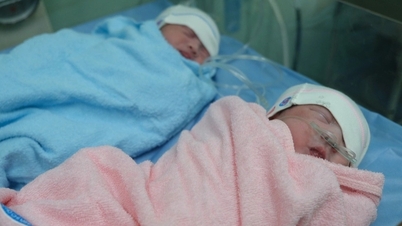

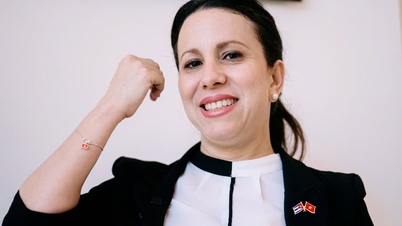


![[Photo] Solemn opening of the 1st Congress of Party Delegates of Central Party Agencies](https://vphoto.vietnam.vn/thumb/402x226/vietnam/resource/IMAGE/2025/9/24/82a89e250d4d43cbb6fcb312f21c5dd4)







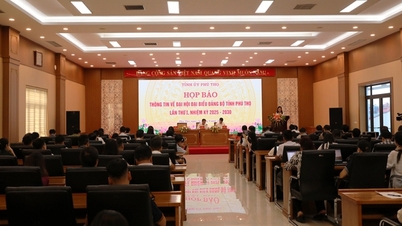










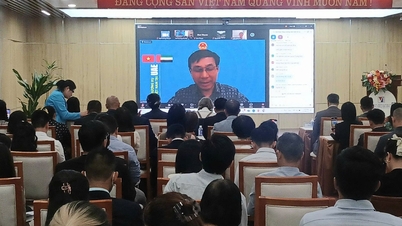




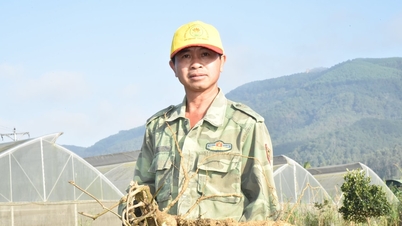








Comment (0)